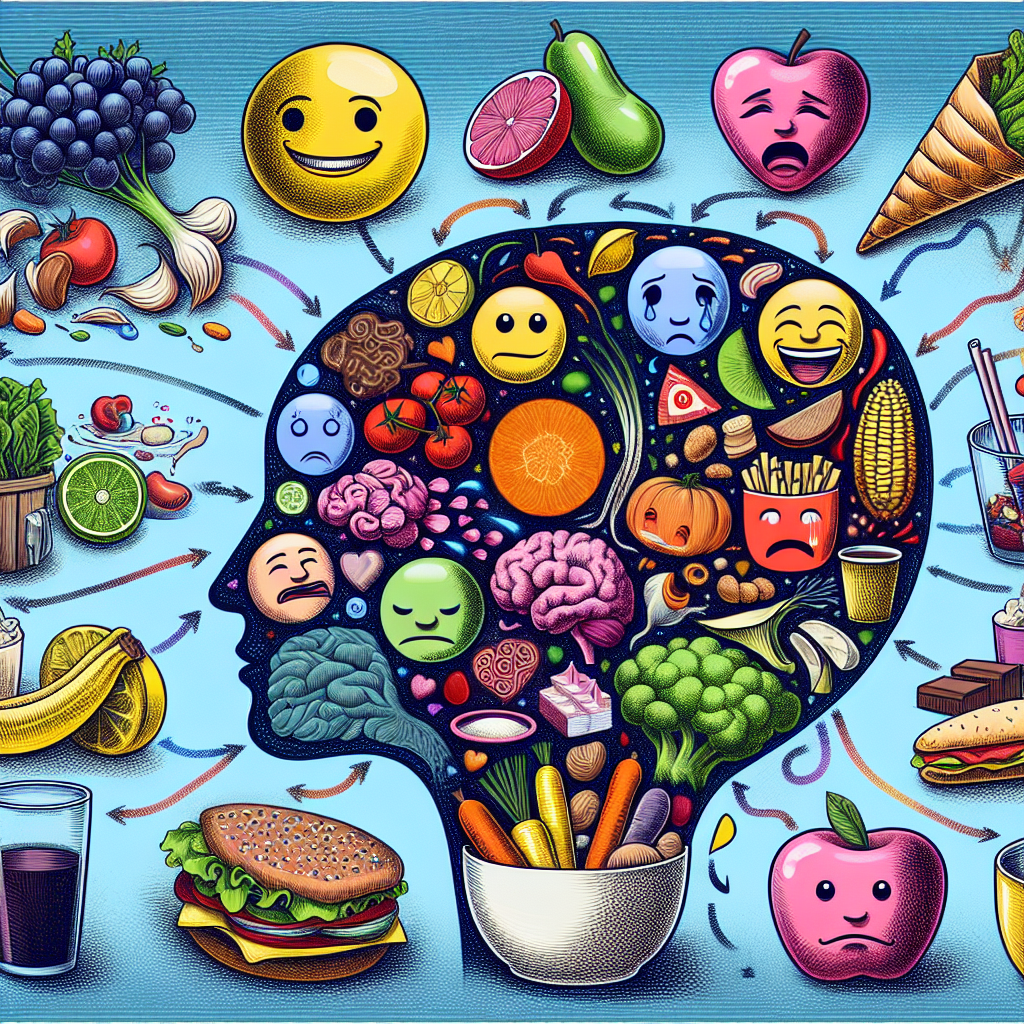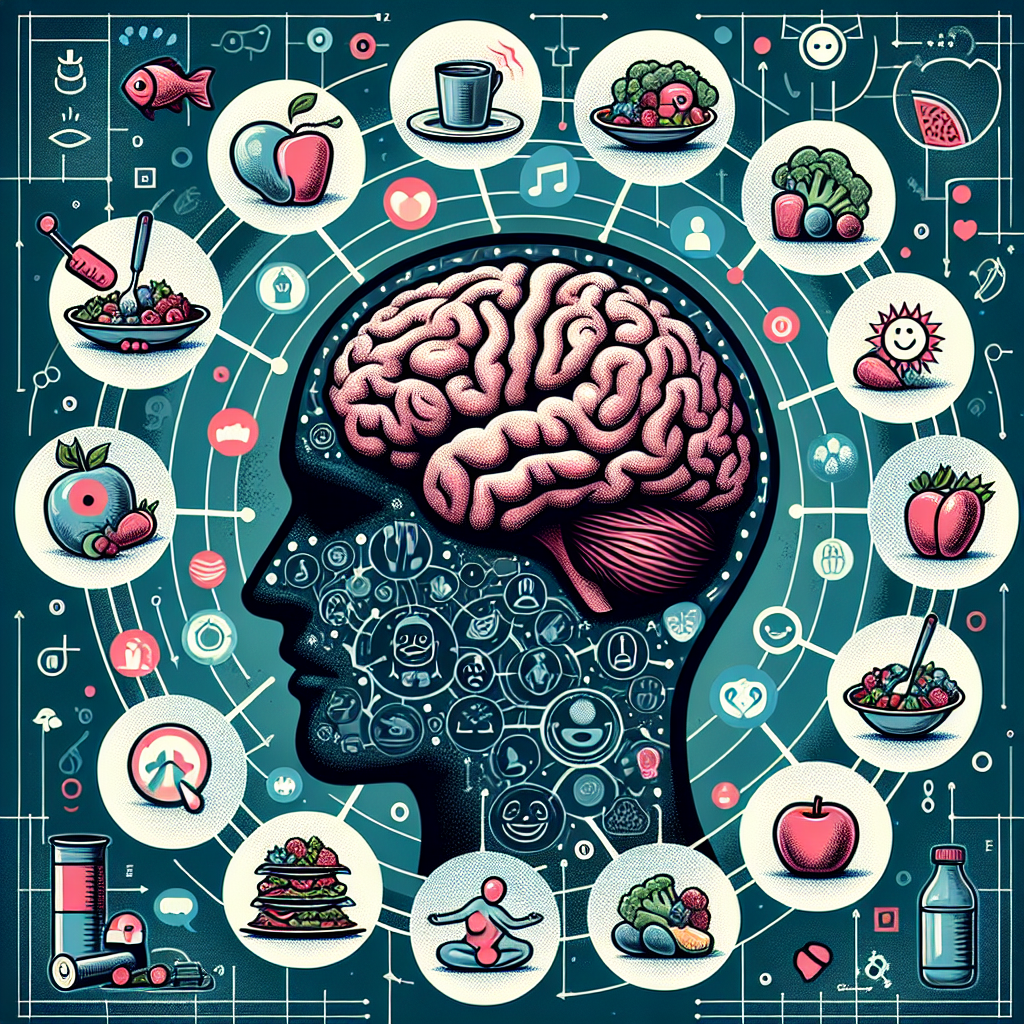The Psychology of Eating: How Emotions Influence Nutrition

Discover more about the fascinating connection between your emotions and nutrition. Learn how the psychology of eating can influence your dietary choices and overall health. Dive into this intriguing topic and start your journey towards a healthier lifestyle today. Click here to get started.
Exploring the Emotional Triggers Behind Unhealthy Eating Habits
The psychology of eating is a fascinating field that delves into the intricate relationship between our emotions and our nutritional choices. It is a well-established fact that our emotions can significantly influence our eating habits. However, the depth and complexity of this relationship are often underestimated. This article aims to explore the emotional triggers behind unhealthy eating habits, shedding light on how our feelings can impact our nutritional choices.
Emotional eating, a term that has gained considerable attention in recent years, refers to the act of using food as a coping mechanism to deal with negative emotions. It is a common response to stress, anxiety, sadness, and even boredom. When we are in the throes of such emotions, we often turn to food for comfort. This is because certain foods, particularly those high in sugar and fat, can stimulate the release of chemicals in the brain that induce feelings of pleasure and satisfaction.
However, emotional eating is not just about seeking solace in food during times of distress. It can also be triggered by positive emotions. Celebrations, for instance, are often associated with indulgent eating. We tend to associate certain foods with happiness and reward, leading us to overeat during festive occasions or as a way to celebrate personal achievements.
The link between emotions and eating habits is not just psychological but also physiological. Our bodies respond to emotional stress by releasing hormones like cortisol, which can increase our appetite and cravings for unhealthy foods. This is an evolutionary response designed to provide us with the energy needed to deal with stressful situations. However, in today’s world, where stress is often chronic and not related to physical danger, this response can lead to unhealthy eating habits and weight gain.
Understanding the emotional triggers behind unhealthy eating habits is the first step towards developing healthier eating patterns. It involves becoming more mindful of our eating habits and the emotions that drive them. This can be achieved through practices like mindful eating, which involves paying close attention to what and when we eat, and emotional awareness, which involves identifying and understanding our emotional triggers.
Mindful eating encourages us to slow down and savor our food, helping us to recognize when we are full and reducing the likelihood of overeating. Emotional awareness, on the other hand, helps us to identify the emotions that trigger unhealthy eating habits. By understanding these triggers, we can develop strategies to manage them in healthier ways, such as through exercise, meditation, or talking to a friend.
In conclusion, the psychology of eating is a complex interplay of emotions and physiological responses that can significantly influence our nutritional choices. By understanding the emotional triggers behind unhealthy eating habits, we can develop strategies to manage these triggers in healthier ways. This not only helps us to improve our nutritional choices but also enhances our overall emotional well-being. After all, a healthy mind is just as important as a healthy body.
The Role of Emotions in Nutritional Choices: A Psychological Perspective

The psychology of eating is a fascinating field that explores the intricate relationship between our emotions and nutritional choices. It delves into the complex interplay of psychological factors that influence our dietary habits, providing a deeper understanding of why we eat what we eat. This article will focus on the role of emotions in nutritional choices from a psychological perspective.
Emotions play a pivotal role in our lives, influencing our thoughts, behaviors, and decisions, including our food choices. They can act as powerful triggers, prompting us to reach for certain foods in response to specific emotional states. For instance, many of us have experienced the urge to indulge in comfort foods when we’re feeling stressed, anxious, or sad. This phenomenon, often referred to as emotional eating, is a clear demonstration of how our emotions can steer our nutritional choices.
The connection between emotions and eating is deeply rooted in our evolutionary history. Our ancestors relied on food not only for survival but also for emotional comfort and social bonding. Over time, this relationship has evolved and become more complex, influenced by various social, cultural, and individual factors.
From a psychological perspective, emotional eating can be seen as a coping mechanism, a way to deal with negative emotions or stress. When we’re under stress, our bodies produce higher levels of the hormone cortisol, which can increase our appetite, particularly for sugary, fatty foods. These foods can stimulate the release of certain chemicals in the brain that evoke feelings of happiness and pleasure, providing temporary relief from our emotional distress.
However, emotional eating can also lead to unhealthy eating patterns and contribute to weight gain and other health problems. This is where the concept of mindful eating comes into play. Mindful eating encourages us to pay attention to our hunger and fullness cues, to eat slowly and savor each bite, and to recognize and respond to our emotions without using food as a coping mechanism.
Research has shown that practicing mindful eating can help reduce emotional eating and improve our overall relationship with food. It can help us make healthier food choices, not driven by emotional triggers but by genuine physiological hunger. Moreover, it can enhance our enjoyment of food and promote a more balanced and positive attitude towards eating.
In addition to mindful eating, cognitive-behavioral therapy (CBT) can also be an effective approach to addressing emotional eating. CBT is a form of psychotherapy that helps individuals understand and change their thought patterns and behaviors. In the context of emotional eating, CBT can help individuals identify their emotional triggers, develop healthier coping strategies, and establish more balanced eating habits.
In conclusion, understanding the role of emotions in our nutritional choices can provide valuable insights into our eating behaviors. It can help us recognize and address emotional eating, promote healthier eating habits, and improve our overall well-being. While emotions are an integral part of our lives, they don’t have to dictate our nutritional choices. With mindfulness, self-awareness, and the right strategies, we can take control of our eating habits and make food choices that nourish both our bodies and minds.
Understanding Emotional Eating: The Psychological Factors Influencing Nutrition
The psychology of eating is a fascinating field that delves into the intricate relationship between our emotions and our nutritional choices. It is a realm where the mind and the plate intersect, revealing how our feelings can significantly influence our dietary habits. This article aims to shed light on the concept of emotional eating, a phenomenon that underscores the psychological factors influencing nutrition.
Emotional eating is a term that refers to the tendency of individuals to consume food, not out of physical hunger, but as a response to a range of emotions. These emotions can span the spectrum from happiness, boredom, and stress, to sadness, anxiety, and loneliness. The food consumed during these emotional episodes often tends to be high in calories, sugar, and fat, leading to unhealthy eating patterns and potential weight gain.
The roots of emotional eating can be traced back to our early years. As infants, we are often soothed with food, creating an association between eating and comfort that can persist into adulthood. This association is further reinforced by societal norms and media portrayals that depict food as a source of solace during stressful times, a reward for achievements, or a means to celebrate joyous occasions.
The brain also plays a crucial role in emotional eating. When we consume food, particularly those high in sugar and fat, our brain releases chemicals such as dopamine and serotonin, which induce feelings of pleasure and satisfaction. This biochemical response can lead to a form of self-medication, where individuals turn to food to alleviate negative emotions or enhance positive ones.
However, emotional eating is not solely about seeking pleasure or comfort. It can also be a manifestation of suppressed emotions. Some individuals may use food as a distraction to avoid confronting uncomfortable feelings or challenging situations. In this context, eating serves as a coping mechanism, albeit an unhealthy one, providing temporary relief from emotional distress.
Understanding the psychological factors influencing nutrition is the first step towards addressing emotional eating. It involves developing a heightened awareness of the triggers that lead to emotional eating and distinguishing between physical hunger and emotional hunger. Physical hunger is gradual and can be satiated with any food, while emotional hunger is sudden, specific, and not easily satisfied even after consuming a large quantity of food.
Cognitive-behavioral therapy (CBT) has been shown to be effective in managing emotional eating. It focuses on identifying and changing negative thought patterns and behaviors, promoting healthier eating habits. Mindfulness practices, such as mindful eating, can also be beneficial. They encourage individuals to pay attention to their hunger cues, savor their food, and experience the act of eating with all their senses, thereby reducing the likelihood of emotional eating.
In conclusion, the psychology of eating underscores the profound influence of emotions on our nutritional choices. Emotional eating, driven by a complex interplay of early life experiences, societal norms, brain chemistry, and suppressed emotions, can lead to unhealthy eating patterns. However, by understanding these psychological factors and adopting strategies like CBT and mindfulness, individuals can navigate their way towards healthier eating habits and improved emotional well-being.